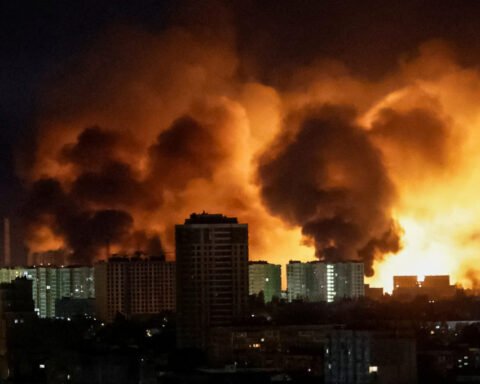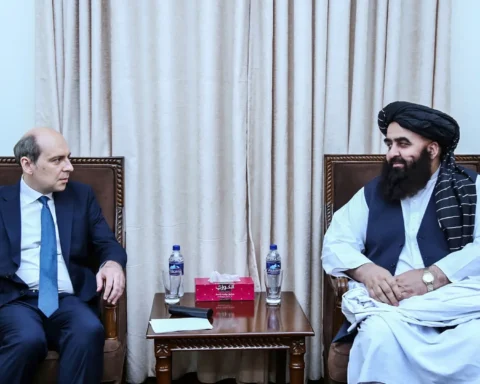Tensions boiled over in the Democratic Republic of Congo (DRC) on Tuesday as angry protesters stormed several embassies in the capital, Kinshasa, accusing foreign nations of turning a blind eye to the ongoing conflict in the country’s volatile east.
The demonstrations erupted in response to the recent escalation of violence, with the M23 rebel group—allegedly backed by Rwanda—seizing control of key positions near Goma, the capital of North Kivu province. Furious over what they see as international complicity, protesters took to the streets, setting fires, blocking roads, and clashing with police.
Security forces responded with tear gas to disperse the crowds, but not before demonstrators vandalized the embassies of France, the United States, Rwanda, Uganda, and Kenya. Witnesses reported seeing flames at the French embassy before authorities managed to contain the fire. French Foreign Minister Jean-Noël Barrot confirmed the attack, calling it “unacceptable,” though he did not provide details on the extent of the damage.
One protester, visibly frustrated, expressed the deep-rooted anger felt by many Congolese citizens. “All of this is because of Rwanda. They are working with France, Belgium, the United States, and others. The people of Congo are tired. How many times should we die?” he said.
Also Read; $40 Billion to Boost Africa’s Energy
Access
Amid the chaos, demonstrators attacked the Kenyan embassy, with witnesses claiming that soldiers present did not intervene. Meanwhile, the Ugandan embassy was looted, according to a Reuters journalist on the scene.
The Congolese government has yet to issue an official statement on the violence, but the protests reflect growing frustration over what many see as insufficient international action against the rebels. The United Nations and regional leaders have called for calm and urged diplomatic efforts to prevent further escalation.
With tensions still high and the conflict in eastern Congo showing no signs of easing, fears are mounting that the situation could spiral into a broader regional crisis.






